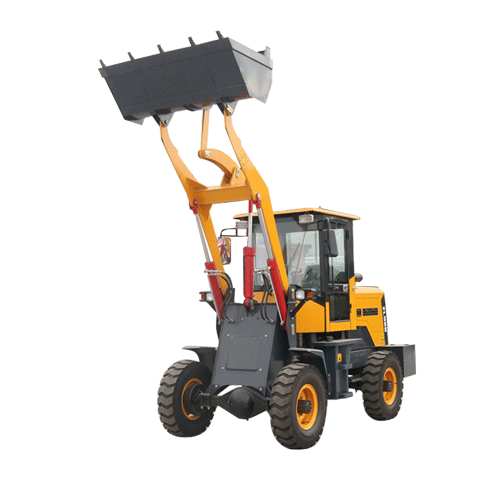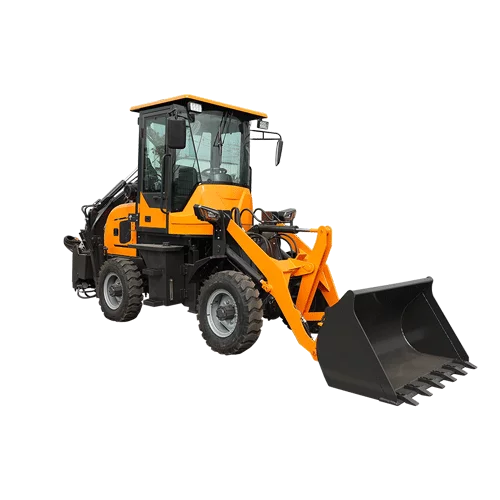Introduction
In the ever-evolving world of construction and heavy machinery, finding the right equipment can make a significant difference in efficiency and productivity. Among the essential pieces of equipment are mini wheel loaders, which are compact, versatile, and powerful. This guide will walk you through the process of choosing the best mini wheel loaders for sale, with a particular focus on Excavator Mini options. We will cover everything from understanding the basics to evaluating different models and brands, ensuring you make an informed decision for your needs.
Understanding Mini Wheel Loaders

Mini wheel loaders are compact versions of full-sized wheel loaders, designed for smaller tasks and spaces. They are ideal for construction sites, landscaping projects, and agricultural uses where maneuverability and precision are crucial. These machines are known for their versatility, allowing operators to perform various tasks such as loading, lifting, and transporting materials.
Key Features of Mini Wheel Loaders
- Compact Size: Their smaller footprint allows them to navigate tight spaces and confined job sites.
- Versatility: Equipped with different attachments, mini wheel loaders can handle multiple tasks, from digging to lifting.
- Power and Efficiency: Despite their size, these machines pack a punch, providing significant power and operational efficiency.
- Ease of Use: Designed with user-friendly controls, they are accessible even to less experienced operators.
Evaluating Your Needs
Before diving into the market, it’s essential to evaluate your specific needs to choose the best mini wheel loader for your operations.
Assess Your Job Requirements
- Project Scale: Consider the size and scope of your projects. Are you working on small residential jobs or larger commercial sites?
- Terrain Type: Identify the type of terrain you will be working on. Is it rough, uneven, or smooth?
- Load Capacity: Determine the amount of material you need to move. This will help you choose a loader with the appropriate lifting capacity.
Budget Considerations
Budget is a crucial factor in your decision-making process. Mini wheel loaders vary in price based on their features, brand, and condition (new or used).
- Initial Cost: Set a budget range for your purchase.
- Maintenance and Operation Costs: Factor in the long-term costs of owning and operating the loader, including fuel, maintenance, and repairs.
Choosing the Right Attachments
Mini wheel loaders are incredibly versatile due to their compatibility with various attachments. Selecting the right attachments can enhance your loader’s functionality and efficiency.
Common Attachments
- Buckets: Standard buckets are used for general-purpose loading and material handling.
- Forks: Pallet forks are ideal for lifting and transporting palletized materials.
- Grapples: Grapples are used for handling loose materials, such as logs or debris.
- Snow Blades: Essential for snow removal tasks, these blades can clear large areas quickly.
Matching Attachments to Tasks
Identify the primary tasks you will be performing and choose attachments accordingly. For instance, if you frequently move pallets, a set of pallet forks will be indispensable.
Buying from Reputable Dealers
Purchasing your mini wheel loader from a reputable dealer ensures you receive a quality product and reliable customer service.
Why Choose buy-machine.com?
- Wide Selection: buy-machine.com offers a vast inventory of mini wheel loaders, including Excavator Mini models, from top brands.
- Expert Guidance: Their knowledgeable staff can assist you in choosing the best loader for your needs.
- After-Sales Support: Enjoy comprehensive after-sales support, including maintenance services and parts availability.
Maintenance and Safety Tips

Proper maintenance and adherence to safety protocols are crucial to ensuring the longevity and safe operation of your mini wheel loader.
Regular Maintenance
- Scheduled Servicing: Follow the manufacturer’s recommended service intervals.
- Inspect Before Use: Conduct daily inspections to check for wear and tear, fluid levels, and any potential issues.
- Keep It Clean: Regularly clean your loader to prevent buildup of dirt and debris that can cause damage.
Safety Precautions
- Operator Training: Ensure operators are properly trained and familiar with the machine’s controls and safety features.
- Load Limits: Do not exceed the loader’s rated capacity to prevent tipping and other accidents.
- Safe Operating Practices: Always operate the loader on stable ground and be mindful of your surroundings.
Conclusion
Choosing the best mini wheel loaders for sale involves careful consideration of your project requirements, budget, and the features of different models and brands. By understanding your needs, comparing options, and buying from reputable dealers like buy-machine.com, you can find the ideal Excavator Mini loader that will enhance your operational efficiency and productivity.
FAQ
What is the difference between a mini wheel loader and a skid steer loader?
Mini wheel loaders are equipped with articulated steering, providing better maneuverability and a smoother ride. Skid steer loaders, on the other hand, have fixed axles and use skid-steering for movement, which can be less smooth but more agile in tight spaces.
How do I choose the right size of a mini wheel loader?
Consider the size of your job site and the type of tasks you will be performing. Smaller models are suitable for tight spaces, while larger ones offer higher lifting capacities and more power for demanding tasks.
Are used mini wheel loaders a good investment?
Used mini wheel loaders can be a cost-effective option if they are well-maintained and in good condition. Ensure you buy from reputable dealers who provide thorough inspections and maintenance records.
What attachments are compatible with mini wheel loaders?
Mini wheel loaders can be equipped with various attachments, including buckets, forks, grapples, and snow blades. The compatibility depends on the model and the specific attachment interface.
How often should I service my mini wheel loader?
Follow the manufacturer’s recommended service intervals, which typically include daily inspections, monthly maintenance checks, and annual servicing. Regular maintenance is crucial to keeping your loader in optimal condition.

